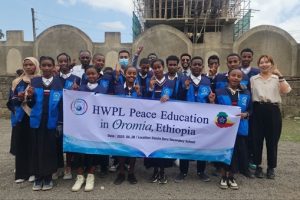
Without a shadow of doubt, any nation should have military organization as the latter is the ultimate shield of that specific country. Yes, the military may be employed in additional sanctioned and non-sanctioned functions within the state, including internal security threats, crowd control, and promotion of political agendas, emergency services and reconstruction, protecting corporate economic interests, social ceremonies, and national honor beyond warfare.
The cooperation of such a prestigious institution and its members need to move in unison with those of other countries to come up with stable and respected nations. That is why countries of the African continent recently commenced a military cooperation.
True, military cooperation is an essential component of military diplomacy and helps build close ties with other nations. Such cooperation also helps strengthen strategic security relationships and address common security concerns. It is hard to maintain positive feelings via developing teamwork and shared decision making, openness, trust and safety, well being among others to have confident military muscle and unwavering sovereignty.
Yes, military cooperation is a military joint function that integrates the understanding of various factors of the operating environment and that enables, facilitates, and conducts military interaction to support the accomplishment of missions and military strategic objectives in peacetime, and crisis too. The obvious motivation in states engaging in military alliances is to protect themselves against threats from other countries. However, states have also entered into alliances to improve ties with a particular nation or to manage conflict with a particular nation.
In response to the volatile global order and contemporary security challenges facing the continent, African Defense Ministers and Military Attachés convened a critical conference aimed at addressing Africa’s complex security landscape. During the gathering in Addis Ababa recently, the delegates explored Africa’s military evolution and future strategies, emphasizing the need for continental cooperation to counter emerging security threats in the global arena.
While officially opening the conference, Deputy Prime Minister Temesgen Tiruneh remarked that renewing continental commitments and engaging military expertise are keys to ensure peaceful, prosperous and resilient Africa.
Ethiopian Defense Minister Ayisha Mohammed (Eng.) stressed the importance of strengthening knowledge and collaboration to tackle the growing threats of cyber-attacks, organized crime, and human trafficking. She highlighted that building resilience among African nations requires unified efforts.
The International military cooperation is also a complex of measures in the military, military education, military-political and military-technical areas carried out by the Ministry of Defenses with the military institutions of foreign states and international organizations in bilateral, trilateral and multilateral formats.
International cooperation encompasses all professional activities aimed at supporting people in need and promoting economic, social and cultural development around the globe. Continental/international cooperation covers the fields of humanitarian aid, development cooperation and peace promotion.
It is definitely high time for renewing military cooperation for Africa’s future. Obviously, renewing continental commitments and engaging military expertise are keys to ensure peaceful, prosperous and resilient Africa. Unequivocally, Africa does not exist in isolation, so it is highly critical to deepen regional and continental engagements to smash the existing bounded threats out and ensure the common security and economic issues.
The aforesaid conference pinpointed that Africa has to unite in peace, needs to be strong in security, and focused on strengthening continental security issues and military cooperation across the continent. African defense ministers, military attaches, senior military officers, higher government officials and researchers on the Africa’s future collective military strategies were in attendance.
Not only is the conference a milestone towards addressing peace and security but also to expedite Africa’s progress and future progress. Apart from the training facilities, and promoting partnerships to ensure peace and security, Ethiopia is undertaking exemplary military professionalism, and infrastructural maintenance.
The very important thing that needs to be taken into account is that cooperation strengthens capacity building within defense sectors through training, technology transfer, and the exchange of knowledge. Such a bold move also helps further strengthen the bilateral agreements in the area between/ among nations.
Hand in hand consolidating cooperation, the continent has to work on reinvigorating spirit of pan-Africanism taking Ethiopia as its hub as the nation has been playing a historical role in peacekeeping and regional stabilities. Besides, the nation is one of the top peace keeping troops contributing countries in Africa.
Of course, military diplomacy has long been one of the essential constituents of international diplomacy and an effective methodology, to foster bilateral and regional relationships. Military training cooperation is also an essential component of military diplomacy and helps build close ties with other nations as it enables countries to establish firm rapport each other/one another.
Such a firm cooperation also helps strengthen strategic security relationships and address common security concerns. Ethiopian defense has rich expertise of operating in varied terrain, as also live combat experience in a vast spectrum of operations. This potential can therefore, be utilized to partake in training activities with other countries, to build close military ties and healthy, mutually beneficial bilateral relations.
Diplomacy can be called the art or practice of conducting international relations, indeed! One of the roles of military diplomacy manifests itself in preventive diplomacy, and within this framework, the military component is aimed to achieve the climate of confidence, necessary for the improvement of relations between two nations. This can be called peacetime military diplomacy.
The best approach to the prevention of confrontation between/among countries is to identify of common interests and to widen cooperation between them in diverse fields, particularly `military’. Depending upon the nature of relations between the states, the interests, peacetime military diplomacy has to find the best rhythm for the development of military relations.
Such a remunerative diplomacy is an important constituent of the five basic channels of nation-to-nation contact between friendly governments, i.e., political, diplomatic, economic, cultural/social, and last but not the least, military. As a component of foreign policy, it aims to bring in greater transparency and confidence in the military sphere and contribute towards closer relations with countries through constructive use of defense resources in times of peace.
This entails striking the right balance between foreign policy and security interests and strengthening military relations through foreign policy tools like military training programs, arms transfers, security dialogues and confidence-building measures. These efforts pay off, with stronger security relationships with other countries.
Ethiopia has an abiding stake in peace and stability in its neighborhood for its long-term security and projection on the regional and eventually the world scene. One of the objectives of a country’s foreign policy is the intensification and consolidation of ties with the neighbors and strengthening of peace and security in the region as a whole, through mutually beneficial cooperation.
Defense cooperation can also help build the foundation for regional group action, which is based on mutual trust and confidence. Upgrading military ties, by looking at various alternatives of peacetime military diplomacy in a sustained manner, can reduce the security concerns in the region and assist in the fulfillment of the foreign policy objectives. Furthermore, the defense training operation is an essential component of military prudence and can prove vital in furthering Ethiopia’s strategic interests.
The establishment of defense cooperation as a defense mission by African countries has provided better coherence and renewed impetus to peacetime activities by its armed forces. In keeping with foreign policy and security objectives, African countries have to establish, build and maintain military-to-military contacts with other countries so as to contribute to strengthening of relations and enhancing peace and security.
The advent of defense cooperation helps nations shape the international security environment in support of key their national security objectives, to improve political and military relations with one another and each other, enhance military modernization and to acquire knowledge in modern military doctrine, operations, training, military medicine, administration, and a host of non-combat-related areas.
All the countries of the continent shall have the vast expertise can therefore be utilized to impart meaningful training to the defense forces of countries in the regions of interest, and to conduct joint training, to build up close military ties and healthy, mutually beneficial bilateral relations. Military training cooperation can therefore be made a focal point of Africa’s military pattern.
Protecting sensitive technologies and information will be of prime importance during joint training and exercises. It will also be imperative to ensure safety of own troops provided as part of training teams with other countries.
The cooperation will also help establish long lasting ties, with future military leaders of the countries in the areas of interest. It is for this reason that Ethiopia and other African nations send officers to attend courses in various countries.
Military training is Ethiopia’s forte and it is essential to take advantage of this strength to harness the goodwill of the younger military generation of other countries in the regions of interest and to establish strategic relationship with them. Many African countries need to utilize the expertise gained in UN peacekeeping operations by imparting training to other countries in various facets of peacekeeping.
Combined exercises between defense forces facilitate interoperability and conduct of joint military operations against a common threat. They provide insight into each other’s leadership techniques, battle drills and standard operating procedures. By training together and cooperating, confusion and delays are prevented and joint operations made smooth and effective. Confidence levels, professional trust and respect are built up through joint exercises. Moreover, such exercises convey signals to potential adversaries and challengers of authority, about the joint military response their actions could invite.
In sum, it is important to lay equal stress on bilateral and multilateral exercises with the defense of the continent. The bilateral and multilateral military and security cooperation can be viewed as a desirable strategic necessity, in terms of Ethiopia and other countries’ long-range national security requirements and interests.
All African countries have embarked on joint exercises for humanitarian airlift, special operations training and small unit group exercises among themselves. Yes, defense cooperation has played a significant role in building strong ties by Ethiopia with the countries in the neighborhood and extended neighborhood.
The participation by the defense forces in training activities with other nations has a number of direct payoffs. Professional knowledge and skills are updated and it provides a benchmark to ascertain training standards, with respect to other countries. It also gives an insight into the available technology in a particular field, for modernization of the defense forces. Unambiguously indeed, it is important to develop close ties with the military forces of the region, to build confidence and enhance security. There cannot be a foreign policy without military content.
BY MENGESHA AMARE
THE ETHIOPIAN HERALD FRIDAY 25 OCTOBER 2024





